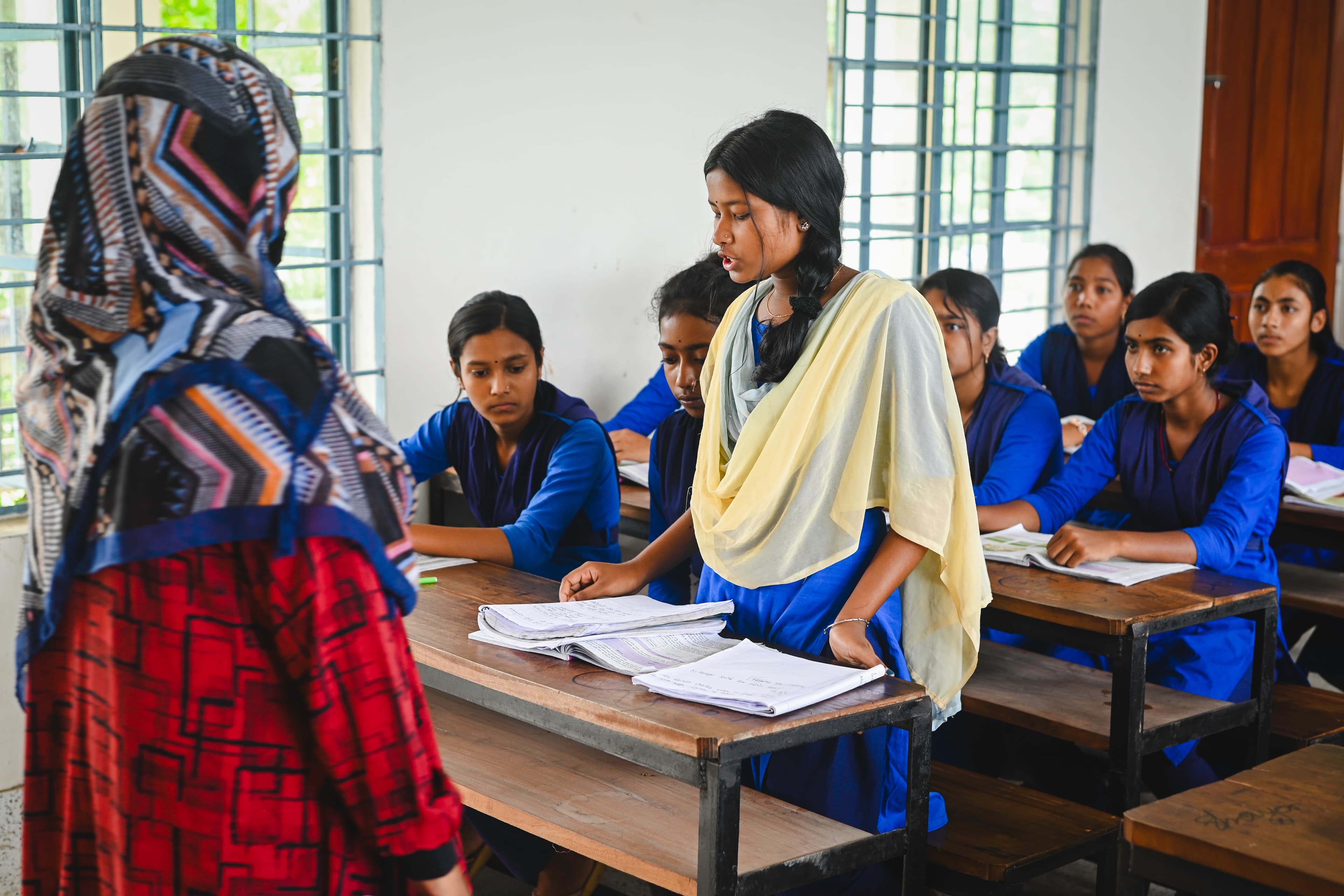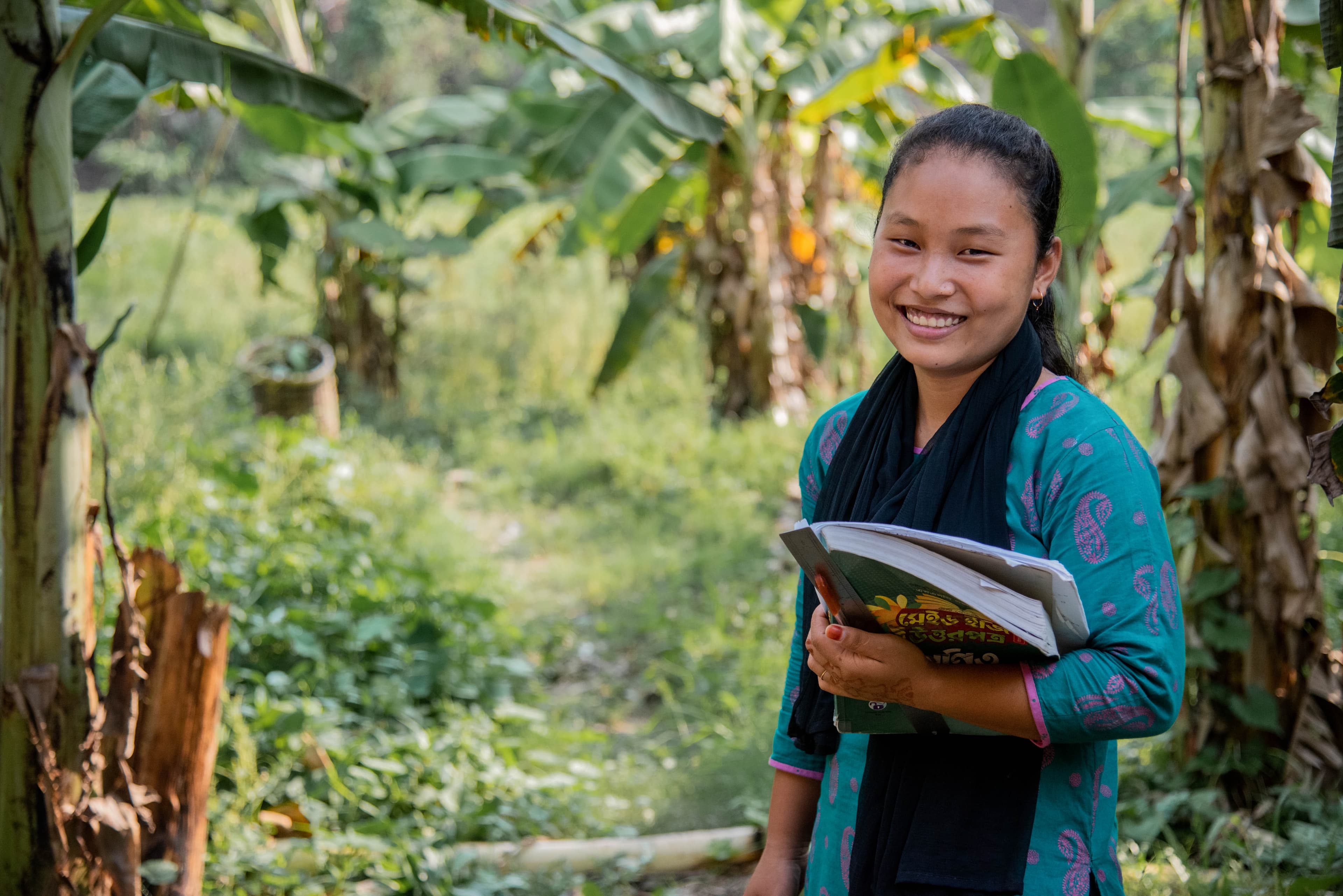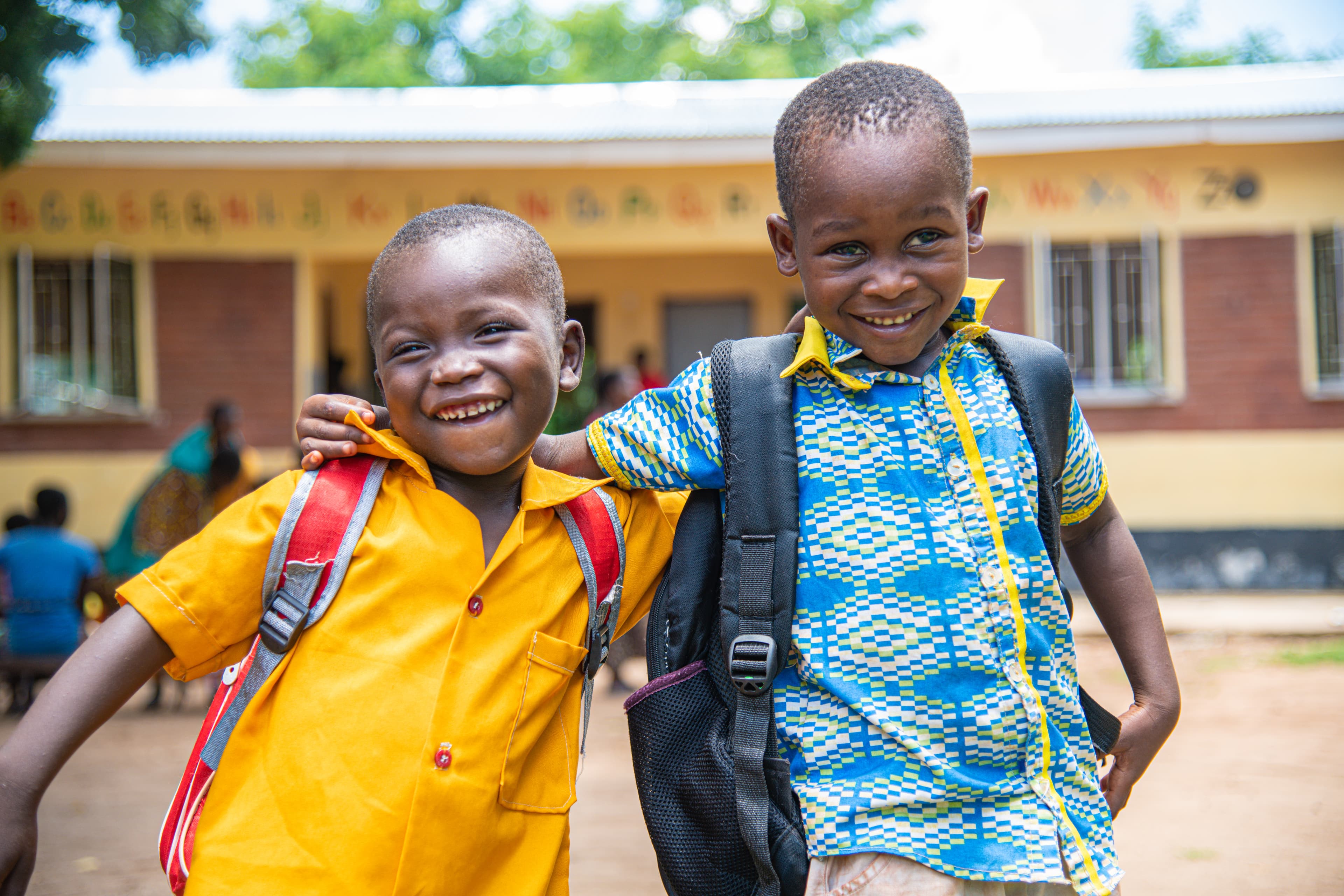
Sponsor a Child's Education
Child sponsorship breaks down barriers that prevent children from receiving educations.
Education Is an Impossibility for Many Children in Poverty
Poverty often makes it impossible for a child to meet their most basic needs, from nutritious food to medical care. It amplifies the risk of violence, exposes children’s bodies to harmful disease and hunger and burdens their hearts with hopelessness.
Poverty locks the door to a brighter future. But educational opportunities can open the door, helping children break the cycle of poverty in their lives. Unfortunately, education is an impossibility for many children living in poverty — and for many reasons.
Food and Other Needs Over Education
For families living in poverty, tuition, books and other supplies are luxuries they can’t afford. Instead, they must spend the resources they do have on more pressing needs, like food.
Working Over Education
Because they lack resources, many families need their children to help provide by working instead of attending school. Children must often work hard and dangerous jobs to bring income into the home.
Marriage Over Education
Pressing financial need moves some families to encourage girls to marry young, as marriage is often viewed as a path to financial security. Instead of attending school, the girls marry and begin raising children of their own.
Even when children can attend school, they often go hungry and malnourished. These children struggle to focus, impairing their ability to learn.
Without a quality education, children struggle to develop the skills necessary to later find employment and improve their circumstances and those of their future families. A lack of education restricts a child’s ability to dream of a life beyond poverty.

Change a Child’s Life: Sponsor a Child’s Education
To get the education they need to thrive, children need nutritious food and clean water. They need school tuition and supplies. And they need the hope of Jesus to inspire them to move forward. You can provide all of this and more through child sponsorship.
Child Sponsorship and Education
Children registered in our Child Sponsorship Program receive access to quality educations. They receive vocational training opportunities and apprenticeships so they can secure employment as adults. They also receive income-generation tools so they can start to provide for themselves using their God-given gifts.
In addition, sponsorship:
Provides the financial aid needed for school expenses, such as textbooks, uniforms and tuition.
Connects children with loving tutors, mentors and advisors.
Offers an opportunity to practice literacy skills through message writing to sponsors.
Provides nutritious food, medical care and more to ensure healthy bodies and strong minds prepared for learning.
Encourages children to use their God-given gifts within their communities.
Unlocks a child’s potential and helps release them from poverty in Jesus’ name.
For only $43 per month, you can sponsor a child living in extreme poverty and give them access to a life-changing education and the support of a local church.
Want to learn more about child sponsorship? Learn more by visiting our Child Sponsorship FAQs.
The Power of Education: Shanti’s Story
Unlike most Bangladeshis, the Chakma Indigenous group speaks a tribal language. Not understanding Bengali puts the Chakma at a distinct disadvantage, namely, in public schools where only Bengali is spoken.
Education up to grade five is mandatory in Bangladesh, but children from minority tribal groups usually drop out shortly thereafter. They join their families in agricultural labor, prolonging the poverty cycle. But Shanti is different.

Shanti received sponsor support through Compassion. Among many benefits, sponsorship equipped her with the books, uniforms and monthly tuition fees needed for her educational programs.
Shanti accomplished something unheard of in her community with the help of her sponsor, the local church and her passion for academics.
She is now trilingual, understanding not only Chakma but also Bengali and English.
Shanti has taken the gift of her education and is using it to give back to her community by tutoring her neighbor’s children for free. This extends the impact of her education and helps break the poverty cycle for more children.

Child sponsorship through Compassion provides the critical care children in poverty need, including education.
Sponsor a Child's Education Today
Sponsoring a child through Compassion ensures they have everything they need to thrive — mind, body and soul. Give the gift of a life-changing education by sponsoring a child’s education today.
Partnering with the local church in a one-to-one relationship is a child sponsorship model we have seen work well for decades. Would you consider becoming part of our family and sponsor a child today?